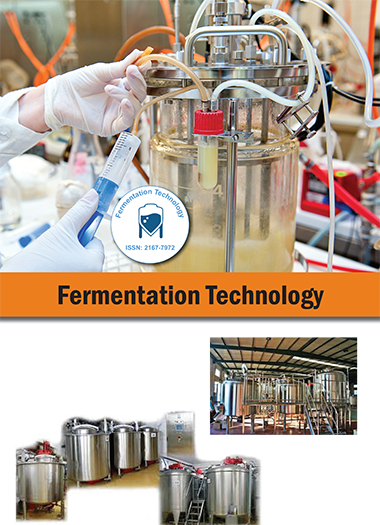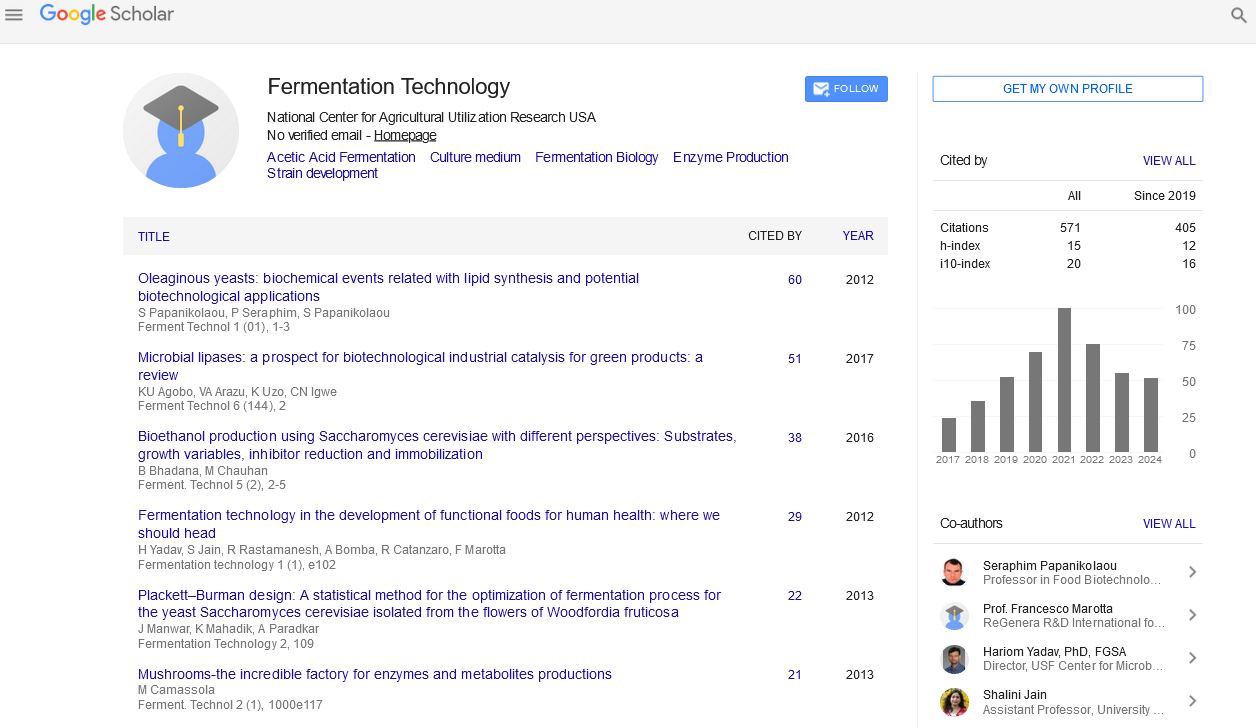Indexed In
- Open J Gate
- Genamics JournalSeek
- Access to Global Online Research in Agriculture (AGORA)
- RefSeek
- Hamdard University
- EBSCO A-Z
- OCLC- WorldCat
- Publons
Useful Links
Share This Page
Journal Flyer

Open Access Journals
- Agri and Aquaculture
- Biochemistry
- Bioinformatics & Systems Biology
- Business & Management
- Chemistry
- Clinical Sciences
- Engineering
- Food & Nutrition
- General Science
- Genetics & Molecular Biology
- Immunology & Microbiology
- Medical Sciences
- Neuroscience & Psychology
- Nursing & Health Care
- Pharmaceutical Sciences
The varied adhesive abilities of acetic acid bacteria isolated from environmental and industrial sources
World Congress on Beneficial Microbes: Food, Pharma, Aqua & Beverages Industry
August 25-27, 2015 Valencia, Spain
Hubert Antolak and Dorota Kregiel
Lodz University of Technology, Poland
Scientific Tracks Abstracts: Ferment Technol
Abstract:
Acetic acid bacteria (AAB) are the members of Acetobacteraceae family, widespread in nature. The bacteria colonize the environments rich in saccharides occuring as a native microflora of flowers, fruits, honey. In biotechnology, AAB are very important group of microorganisms used in vinegar biosynthesis, biocellulose production, biocatalysis. In other hand, the bacteria are responsible for contamination of alcoholic and nonalcoholic beverages coasing sensory-organoleptic changes of the product. A significant amount of products are contaminated by bacteria inhabit in a biofilm formed on the inner parts of the production line. Due to the high resistance of formed microbial structure and low efficiency of washing and disinfecting processes, the problem affects a growing number of companies. The objective of this study was to investigate adhesive abilities of acetic acid bacteria to packaging materials used in the food industry, both glass and PET (Ethylene Terephthalate). The experiments were performed with a 15 strains isolated from polish and exotic fruits and contaminated products. The analysis of adhesion to the carriers was performed by luminometry, the plate count method and microscopic observations. Biofouling during incubation had a dynamic and changeable character. The number of attached cells was significantly higher with PET surface. The highest values of RLU were obtained for Asaia lannensis strains isolated from the mineral flavoured water and grapes. Results of our study show that the less hydrophobic materials such as glass are much better for food industry. The microbial adhesion to this kind of material is less efficient with decreased probability of biofilm occurrence in production processes.
Biography :
Hubert Antolak finished his studies at the Lodz University of Technology, Faculty of Biotechnology and Food Science with engineer degree in Biotechnology in 2012. In 2013 he received Master degree in Biotechnology at Biotechnology and Food Sciences Department. In the same year, he began PhD studies at the Institute of Fermentation Technology and Microbiology, Department of Biotechnology and Food Sciences, Lodz University of Technology. He is co-author of articles in Polish Journals: Food, Science, Technology, Quality; Food Industry; Laboratory; Agro Industry; and article in BioMed Research International. He is co-author of nucleotide sequences deposited in GenBank database.
Email: hubert.antolak@gmail.com

